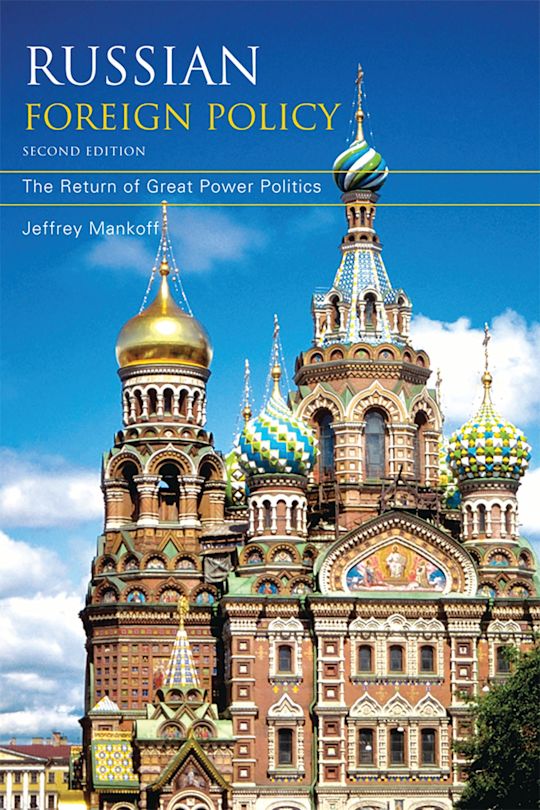Russian Foreign Policy
The Return of Great Power Politics
- Textbook
Russian Foreign Policy
The Return of Great Power Politics
- Textbook
For information on how we process your data, read our Privacy Policy
Description
Now thoroughly updated, this widely praised book provides a thoughtful and balanced examination of the development of Russian foreign policy since the end of the Cold War. This edition also places developments of the past two decades into the broader sweep of Russian history. Jeffrey Mankoff argues that Russia's more assertive behavior since Vladimir Putin became president in 2000 has resulted from both a deep-seated consensus among its elite about Russia's identity and interests as well as a favorable convergence of events—including the persistence of high energy prices and the check on U.S. power resulting from the wars in Iraq and Afghanistan. Because these factors are the result of long-term trends, the author argues that there is little reason to expect that the election of Dmitry Medvedev will fundamentally alter Russian foreign policy behavior.
Presenting an evenhanded treatment of controversial issues, Mankoff analyzes Russia's interactions with major global actors, including the United States, the European Union, the Commonwealth of Independent States, and China. Despite Moscow's often-harsh rhetoric and the deployment of Russian forces against Georgia in 2008, the author convincingly demonstrates that there is little reason to fear a return to a Cold War-like standoff with the West. Instead, he argues, today's Russia is more interested in restoring what its leaders consider to be its rightful place among the world's major powers rather than in directly challenging the West. Thoroughly researched and knowledgeable, this book will be invaluable for all readers interested in Russia.
Table of Contents
Chapter 1: Contours of Russian Foreign Policy
Chapter 2: Bulldogs Fighting Under the Rug: The Making of Russian Foreign Policy
Chapter 3: Resetting Expectations: Russia and the United States
Chapter 4: Europe: Between Integration and Confrontation
Chapter 5: Rising China and Russia's Asian Vector
Chapter 6: Playing with Home Field Advantage? Russia and its Post-Soviet Neighbors
Conclusion: Dealing with Russia's Foreign Policy Reawakening
Product details
| Published | Oct 16 2011 |
|---|---|
| Format | Ebook (Epub & Mobi) |
| Edition | 2nd |
| Extent | 352 |
| ISBN | 9781442208261 |
| Imprint | Rowman & Littlefield |
| Series | A Council on Foreign Relations Book |
| Publisher | Bloomsbury Publishing |
Reviews

ONLINE RESOURCES
Bloomsbury Collections
This book is available on Bloomsbury Collections where your library has access.



































